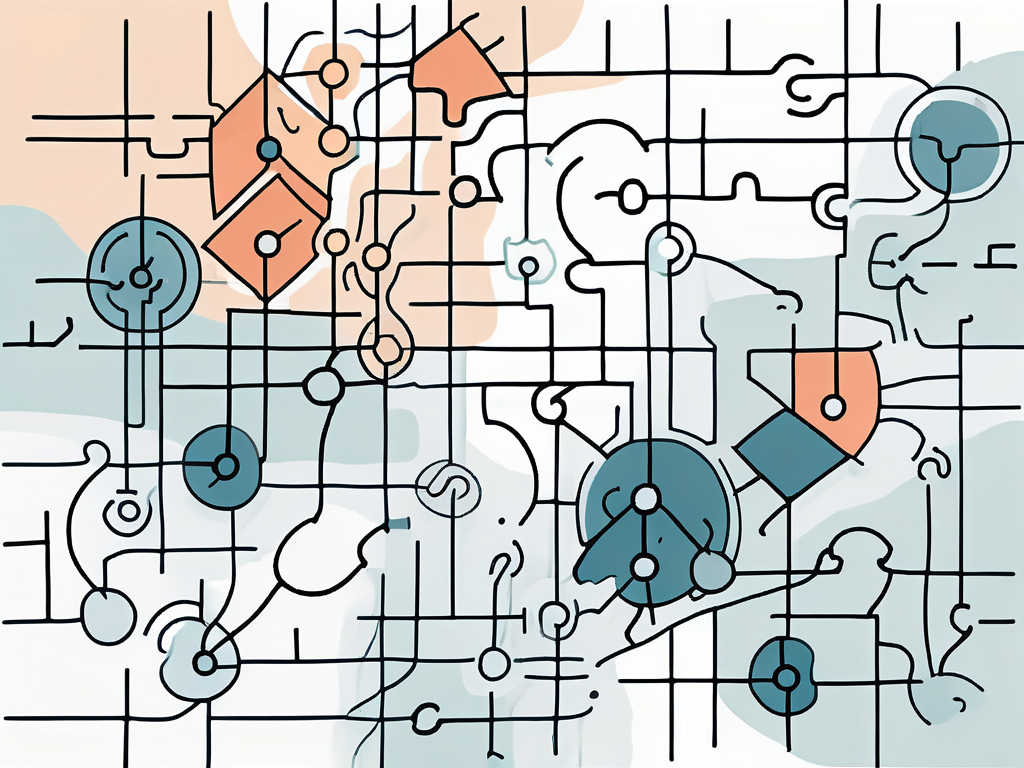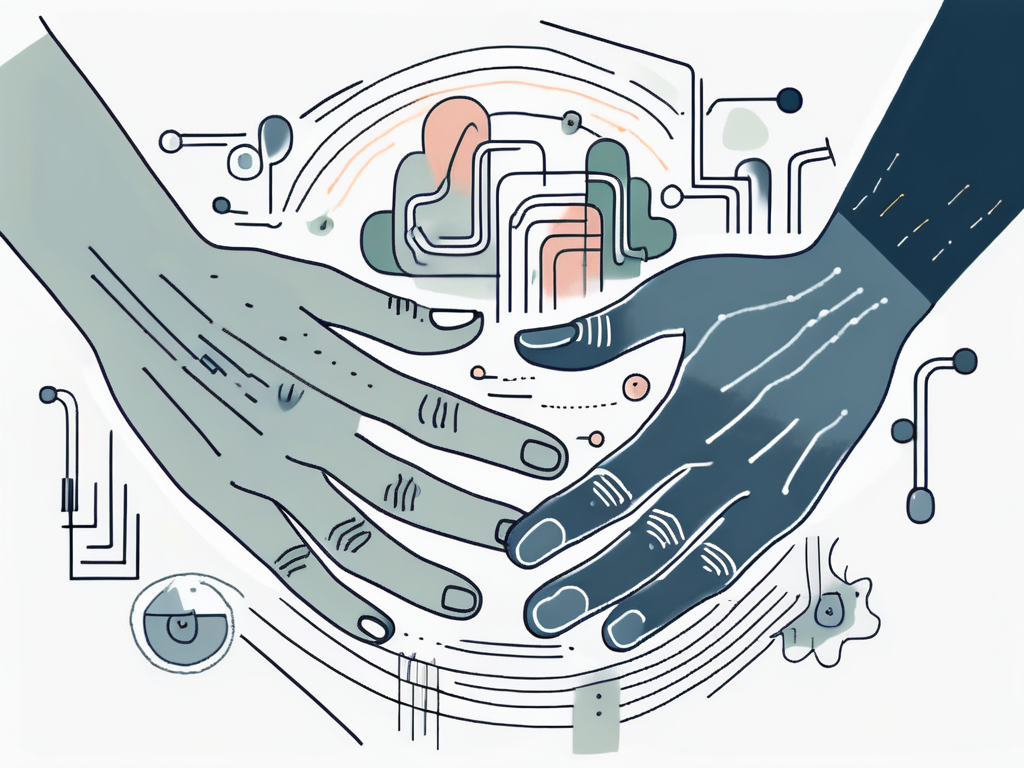Living with chronic pain can be incredibly challenging. It affects every aspect of life, from daily activities to mental well-being. Unfortunately, many individuals find themselves unable to escape the grip of pain, despite their best efforts. In this article, we delve into the three primary reasons why people fail to break free from the clutches of their pain, exploring the nature of chronic pain, inadequate pain management strategies, lack of knowledge about pain, and psychological factors contributing to prolonged agony. By understanding these obstacles, we can begin to seek new approaches to pain relief and regain control over our lives.
Understanding the Nature of Chronic Pain
Chronic pain is more than just a physical sensation. It is a complex phenomenon that involves intricate interactions between the brain, nerves, and the body. To comprehend why individuals fail to escape chronic pain, it is crucial to grasp the fundamental role the brain plays in pain perception.
Furthermore, chronic pain is not a static condition but rather a dynamic process that can involve changes in the nervous system over time. These changes can lead to increased sensitivity to pain, a phenomenon known as central sensitization. Central sensitization can result in even the slightest touch causing intense pain, further complicating the management of chronic pain.
The Role of the Brain in Pain Perception
Our brain acts as the central control unit, processing information from the body and determining whether or not to interpret it as pain. In cases of chronic pain, the brain's pain signals become altered, amplifying pain sensations and prolonging their existence. This altered pain processing can make it incredibly challenging for individuals to find relief.
Moreover, the brain's emotional centers, such as the amygdala, can also play a significant role in how pain is experienced. Emotional factors like stress, fear, and past experiences can influence the brain's perception of pain, leading to increased intensity and persistence of chronic pain symptoms.
The Impact of Chronic Pain on Quality of Life
Chronic pain is not just limited to physical discomfort; it has far-reaching effects on a person's overall well-being. It can lead to sleep disturbances, decreased mobility, and difficulties in carrying out everyday tasks. The constant presence of pain can also contribute to anxiety, depression, and a reduced quality of life.
Furthermore, the social impact of chronic pain should not be overlooked. Individuals living with chronic pain may face challenges in maintaining relationships, participating in social activities, and fulfilling work responsibilities. This social isolation can exacerbate feelings of loneliness and further impact mental health and overall quality of life.
Reason 1: Inadequate Pain Management Strategies
One significant reason why people struggle to alleviate their pain is the use of inadequate pain management strategies. While over-the-counter medications may offer temporary relief for mild pain, they often fall short in addressing chronic pain effectively.
It is crucial to understand that pain is a complex and multifaceted experience that varies from person to person. Chronic pain, in particular, can be influenced by a myriad of factors such as genetics, lifestyle, psychological well-being, and underlying health conditions. Therefore, a one-size-fits-all approach to pain management is rarely successful in providing long-term relief.
The Limitations of Over-the-Counter Medications
Over-the-counter medications such as nonsteroidal anti-inflammatory drugs (NSAIDs) or acetaminophen are suitable for short-term pain relief. However, their effectiveness diminishes in the face of chronic pain. The underlying causes are often more complex, requiring a more comprehensive approach to manage the condition effectively.
Furthermore, prolonged use of over-the-counter pain medications can have adverse effects on the liver, kidneys, and gastrointestinal system. It is essential for individuals to consult healthcare professionals to explore alternative pain management strategies that are tailored to their specific needs and conditions.
The Dangers of Ignoring Pain
Another mistake individuals make is ignoring pain altogether, hoping that it will eventually disappear on its own. However, this approach can have grave consequences. Failing to address the root cause of pain can lead to further complications, prolonged suffering, and hindered recovery.
Ignoring pain signals from the body can also result in the development of maladaptive pain pathways in the nervous system, leading to a heightened sensitivity to pain over time. It is imperative to listen to the body's signals and seek appropriate medical attention to address pain promptly and effectively.
Reason 2: Lack of Knowledge About Pain
Education plays a pivotal role in pain management. Unfortunately, a lack of knowledge about pain can hinder individuals from finding effective solutions that address the root cause of their suffering.

The Importance of Pain Education
By understanding the underlying mechanisms of pain and its various forms, individuals can grasp the complexity of their condition. Pain education empowers individuals to make informed decisions about their treatment options and actively participate in their own recovery.
Misconceptions About Pain and Healing
Misconceptions about pain and healing can also impede progress. Many individuals believe that pain is a sign of weakness or that seeking help signifies dependence. Dispelling these myths and embracing a holistic approach to pain management can unlock new possibilities for relief.
Furthermore, delving deeper into the realm of pain education reveals the interconnected nature of physical discomfort and mental well-being. Pain is not solely a physical sensation but can also have profound psychological implications. Understanding the psychological aspects of pain can lead to more comprehensive and effective treatment strategies that address both the body and mind.
Empowering Through Knowledge
Empowering individuals with knowledge about pain can also foster a sense of control and agency in managing their condition. When individuals are equipped with a deeper understanding of pain mechanisms, they are better equipped to advocate for themselves in healthcare settings and collaborate with healthcare providers to tailor treatment plans to their specific needs.
Reason 3: Psychological Factors Contributing to Chronic Pain
The mind-body connection is a powerful force in the realm of pain management. Psychological factors, such as stress and mental health, can significantly impact an individual's ability to break free from chronic pain.

Understanding the intricate relationship between our mental state and physical well-being is crucial in managing chronic pain effectively. The brain plays a central role in processing pain signals, and psychological factors can either amplify or alleviate these signals. By addressing psychological aspects, individuals can take a holistic approach to pain management.
The Connection Between Stress and Pain
Stress influences our perception of pain, making it feel more intense and harder to bear. Chronic stress can trigger or worsen pain symptoms, perpetuating a vicious cycle. Learning effective stress-management techniques can help individuals regain control over their pain levels.
Furthermore, stress not only affects pain perception but also contributes to muscle tension and inflammation, which can exacerbate existing pain conditions. By incorporating relaxation techniques, mindfulness practices, and stress-reducing activities into daily routines, individuals can help alleviate both the physical and psychological burden of chronic pain.
The Role of Mental Health in Pain Management
Mental health conditions, such as anxiety and depression, frequently coexist with chronic pain. These conditions can exacerbate pain symptoms and make it more challenging to find relief. Addressing both pain and mental health simultaneously can have a positive impact on overall well-being.
It is essential to recognize the interconnected nature of pain and mental health, as treating one without considering the other may lead to incomplete or temporary relief. Integrative approaches that encompass cognitive-behavioral therapy, mindfulness-based interventions, and support for emotional well-being can empower individuals to better manage their pain and improve their quality of life.
Overcoming the Obstacles to Pain Relief
Breaking free from chronic pain requires a multifaceted approach that addresses the physical, emotional, and psychological aspects of the condition.

The Importance of a Multidisciplinary Approach
A multidisciplinary approach to pain management involves collaborating with a team of healthcare professionals, including physicians, physical therapists, psychologists, and pain specialists. Together, they can create a tailored treatment plan that addresses the specific needs of the individual, combining various modalities to achieve optimal results.
The Role of Lifestyle Changes in Pain Management
Adopting healthy lifestyle habits can also contribute to pain relief. Regular exercise, adequate sleep, stress reduction techniques, and a balanced diet can all play a role in managing pain and improving overall well-being.
In conclusion, chronic pain can have a profound impact on a person's life, making it crucial to address its root causes effectively. By recognizing the limitations of inadequate pain management strategies, seeking pain education, and addressing the psychological factors contributing to chronic pain, individuals can find relief and regain control over their lives. With a multidisciplinary approach and lifestyle changes, the journey out of pain becomes more attainable, offering hope for a pain-free future.




